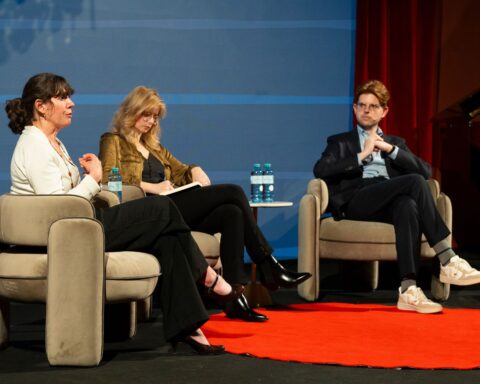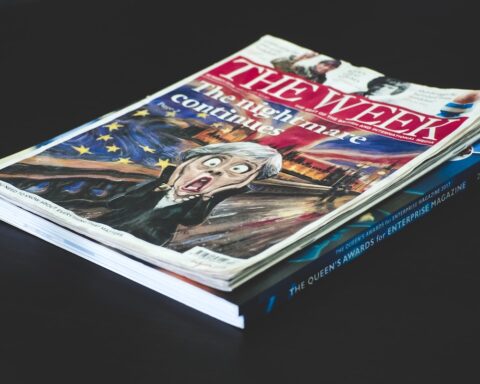February 11 marks the International Day of Women and Girls in Science. In 2015, the United Nations Assembly adopted the resolution stating that this day should recognize the role of women and girls in science. Why does it matter?
For many reasons.
The United Nations’ statement says: “Women and girls represent half of the world’s population and, therefore, also half of its potential. Gender equality, besides being a fundamental human right, is essential to achieve peaceful societies, with full human potential and sustainable development.” This is important, taking into account that women are still underrepresented in science. This ‘tradition’ has lasted for centuries.
If asked about female scientists, most people will probably only come up with Marie Curie’s name. And the chances are, the next thing you’re going to hear will be “but she worked together with her husband”. There have been a lot of women scientists who worked with men, yet, their names are filed as a history. However, everybody is aware of the fact that Marie Curie worked with her husband, Pierre. This looks like double standards, don’t you think?
What is the role of women in science?
For instance, ask any Austrian if they have ever heard the name of Lise Meitner. She was an Austrian-born nuclear physicist. Moreover, Meitner was the first female from the University of Vienna and second in the world to get a PhD in physics, as well as the first woman to get a professorial title in Germany. Lise Meitner, together with Otto Hahn and Otto Robert Frisch, discovered the process of nuclear fission. Ironically, Albert Einstein referred to Meitner as “our [German] Curie” for her contribution in physics. However, she did not share the 1944 Nobel Prize in Chemistry for nuclear fission. It was awarded exclusively to Otto Hahn.
This is just one example of how a woman was not acknowledged for her contribution to science. More than that, it was extremely difficult for women to even get into scientific circles, let alone being acknowledged, as it was thought to be a “men’s field”. As a matter of fact, women have always been present in science to the extent possible at the time.
Learn more about it in this inspiring talk by Rachel Ignotofsky at the TEDxKCWomen event.
Female scientists gave life to a lot of inventions: starting with things that were thought to make a woman’s life easier like a disposable diaper by Marion Donovan and electric refrigerator by Florence Parpart, continuing with wireless transmission technology by Hedy Lamarr and computer software by Grace Hopper.
What is the situation now?
Things have been getting better lately. Nevertheless, there is still a huge gap between women and men in science. For instance, since 2017, women’s share in Austrian science increased from 34% to 46% in 2020. Interestingly, there are actually more women than men with a scientific degree in Austria: 19,2% of women versus 15,9% of men. Statistik Austria also stated: “If you look at the degrees at public universities by subject, the proportion of women in almost all main fields of study in 2017/18 was higher than that of men.”
One of the possible reasons for such numbers is that men without a degree have better chances of finding a good job than women. Unfortunately it is still quite common that women get rejected because of their gender. One of the common reasons for rejection is women’s reproductivity: e.g. “she is so young and will want to start a family soon” or “she has little children and will not have enough resources to work properly”. For these reasons, women have to ‘fight’ for jobs by showing more skills, knowledge, and experience.
Even though the female proportion in science has been increasing lately, women are still underrepresented or misrepresented. One of the examples popping up in mind is the presentation of Dr. Amy Farrah Fowler from “The Big Bang Theory” portrayed by actress Mayim Chaya Bialik, who actually has a degree in neuroscience. Her character was ‘goofy’ and ‘bizarre’. Maybe this is just a sitcom for entertainment, but can you remember another bright example of female scientists in popular culture?
Women are often victims of stigmatization and stereotypes which dictate that science isn’t something for females. The popular stereotype is that a good female scientist is rather an exception to the rule. In the meantime, female scientists work hard to fight the COVID-19 pandemic.
Here are just a few names who are at the frontline of battling with the virus, however, not of the news:
- Dr Nita Patel, a lead of the all-women team developing the COVID-19 vaccine in the firm Novavax;
- Prof. Sarah Gilbert is the developer of the AstraZeneca vaccine against COVID-19;
- Dr Katalin Karikó is one of the developers of the COVID-19 Pfizer BioNTech vaccine.
Besides work, female scientists also look at other aspects in life, they often take care of families and kids, as women tend to be the primary caregivers. Balancing scientific work with bringing up a child cannot be an easy task.
If a woman, in turn, does not have kids, she will most probably be labelled as ‘not successful in life’ and ‘miserable’. Women get such comments they did not ask for quite often, which can be extremely demotivating. The life of a female scientist is basically fighting stereotypes.
While writing this article, I kept thinking about my master thesis and motivation to finish it. Then I couldn’t help myself but think of my mother. She was getting her second Master’s degree while working and having a small child. I asked myself, how did she manage to cope with it? And I am sure that pretty much everyone has a story about a fellow woman who astonishes them. That being said, we should appreciate these stories and not take the contribution of women to science (and other fields) for granted.
The fact is, women, including scientists, manage to accomplish a lot of amazing things despite all the obstacles, stereotypes and stigmas. Isn’t it fascinating? Let’s celebrate women and girls in science and empower them to achieve everything they want. It is totally worth it!
Featured image: © CoWomen via pexels.com





